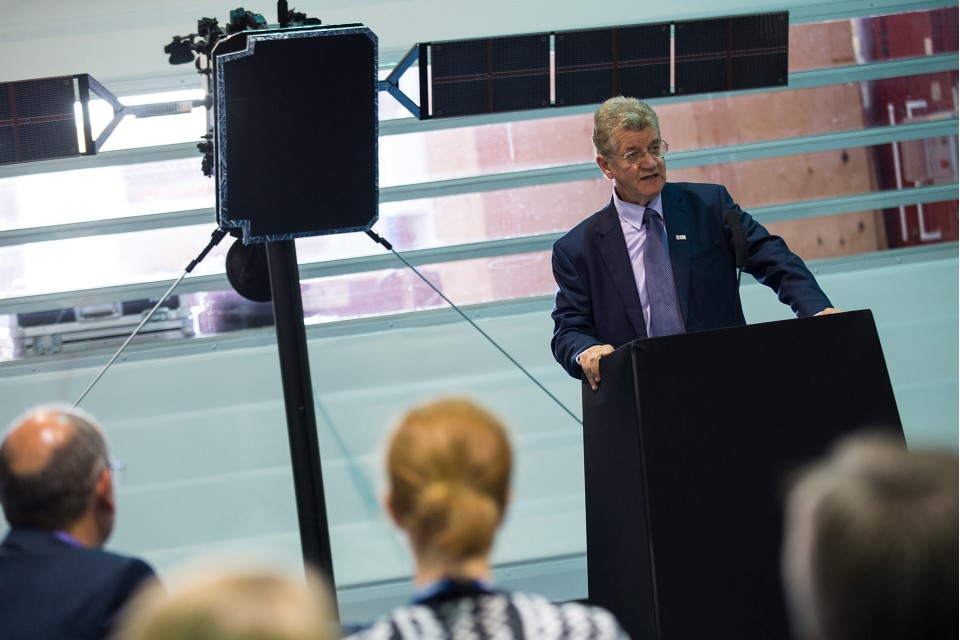Press release: Phase Two of the Community Housing fund is now open
The £163 million fund is available for community-led groups to drive forward their ambitions for delivering new affordable housing schemes across England up to 31st March 2020.
Phase One of the fund launched in July, supports applications for capacity building, pre-development revenue funding and capital funding for local infrastructure projects.
Phase Two bidding is now open to eligible organisations to bid for capital grants to fund the costs of acquiring land and building community-led housing schemes.
The fund aims to give local people a leading and lasting role in delivering local affordable housing.
Jackie Jacob, General Manager for Housing Programmes, at Homes England said: “Community-led housing is about giving local people the lead to solve local housing problems and provide affordable homes in their communities.
“At Homes England, we’re committed to increasing the supply of affordable housing where it’s most needed. It’s great to make funding available for community groups across England to transform how the homes are delivered locally.” Bidding is open to a range of organisations. Both Local authorities and Registered Providers may apply on behalf of community groups to support them through this process.
Bidding for both phases is now open on a Continuous Market Engagement basis via the Homes England Portal. This will remain open to new applications until funding is fully committed or until 31 December 2019, whichever occurs first.
Further details are available in the Prospectus and the Addendum to the Prospectus for Phase Two published on Gov.uk
For further media information please contact:
Nosheen Haque, 0161 200 6131, nosheen.haque@homesengland.gov.uk Or Patsy Cusworth, 020 7393 2201, patsy.cusworth@homesengland.gov.uk
Notes to editors:
In order to ensure that the schemes supported by the Community Housing Fund are truly community-led, proposals should ensure that:
• Meaningful community engagement and consent occurs throughout the development process. The community does not necessarily have to initiate and manage the process, or build the homes themselves, though some may do;
• The local community group or organisation owns, manages or stewards the homes and in a manner of their choosing, and this may be done through a mutually supported arrangement with a Registered Provider that owns the freehold or leasehold for the property; and
• The benefits to the local area and/or specified community must be clearly defined and legally protected in perpetuity.
Bidding is open to all organisations which are, or intend to become, constituted as a body corporate, or an equivalent form of constituted body. Eligible organisations include, but are not restricted to:
• Registered charity;
• Company Limited By Guarantee;
• Community Benefit Society
• Co-operative Society;
• Community Interest Company;
• An organisation of another type operating as a social enterprise and principally reinvesting their surpluses for social benefit;
• Registered Provider of social housing; or
• Local authority.
Organisations which intend to be the landlord of low-cost rental properties funded by Homes England capital grant programmes must be – or intend to become – registered as a provider of social housing (a ‘registered provider’) with the Social Housing Regulator (‘the Regulator’) before completion of any developments funded through those programmes and any payment of funding. It is not, however, a requirement to be a registered provider before applying for Homes England grant.
The requirement to be a registered provider does not apply to organisations that will not act as the landlord of low-cost rental property. Where an organisation is delivering homes for low-cost homeownership – including shared ownership – for example, there is no requirement for that organisation to be a registered provider.
Local authorities or Registered Providers may apply on behalf of community groups and other organisations and, in those cases, the lead bidding organisation will remain directly accountable for the funds, where appropriate. For applications not directly submitted by community-led organisations the applicant must demonstrate how the identified community will be engaged in the development proposal and how this will support the objectives of the Fund.
All organisations applying to the Fund will be required to submit details of the proposed activity through the Homes England bidding portal
Homes England is the new housing delivery organisation that has been created to adopt a more commercial approach to respond to the long term housing challenges facing this country. The new, expanded agency will play a far bigger role in investing in supply and intervening in the market to help deliver 300,000 homes a year by the middle of the next decade.
Homes England will act differently from its predecessor, bringing together money, land, expertise and planning and compulsory purchase powers to accelerate the supply of new homes and address affordability issues in areas of highest demand.
